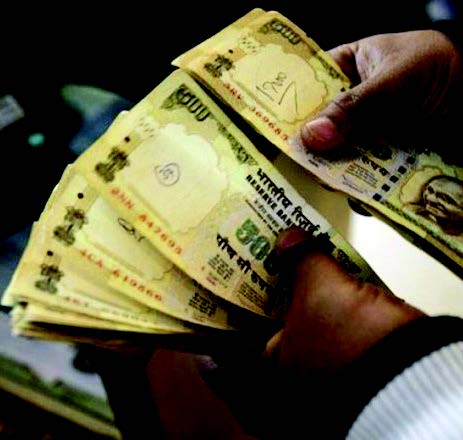
MUMBAI (TIP): As banks close their books for the financial year, they are talking tough with stressed steelmakers and making clear their intent to classify them as defaulters. Banks have also asked the government to seriously consider a specialized funding organization for the steel industry on the lines of the Power Finance Corporation for the power sector.Last week, lenders met highly leveraged steel manufacturers and put them on notice. Although classifying loans to these companies as non-performing assets (NPAs) will mean banks taking a hit on their profits, it will shift the balance of power in favour of the lenders as they will now stop coaxing borrowers and instead initiate recovery proceedings.
The immediate impact would be that Rs 50,000 crore worth of steel loans could be added to non-performing assets. Some of them will be recognized as default cases in the fourth quarter of this fiscal while others would be classified as bad loans in the first quarter of FY17. The companies that banks are holding discussions with include Essar, Bhushan, Visa and Electro Steel.
Ironically , some of these lenders have had their loans restructured under the 525 scheme. The scheme was introduced in 2014 by Reserve Bank of India governor Raghuram Rajan, where loans were extended to 25 years with a condition that interest rates would be reset after every five.The 525 scheme involved zero sacrifice from lenders but it made repayment easier for the borrower by reducing the instalment size. Around 21% of the restruc tured loans as of December 2015, amounting to Rs 54,051 crore, were from the iron & steel industry. The gross non-performing assets in the steel sector as of September 2015 stood at 8.4%. This is expected to rise to nearly 12% by March 2017.The steel industry is the highest leveraged sector in India and banks are not in a position to extend fresh loans.
In a recent industry note, State Bank of India managing director B Sriram had said, “We think time has come for the government to seriously look into the possibility of setting up a funding agency for the steel sector, as well, on the same lines of PFC or REC for the power sector. For, the industry will be requiring more than Rs 10 lakh crore to raise its capacity to 300 MTPA by 2025.”
The note pointed out that government measures on safeguard duty and minimum import price were benefiting steelmakers, but the impact of this on margins of user industry such as automobile, appliances and engineering needs to be seen.
Lenders hope that the demand for steel will go up with the government’s push to infra and construction sector through its thrust on highways, railways and smart cities. The 26 nationalized banks, which are expecting a Rs 25,000 crore government bailout in the coming financial year, have lost at least Rs 30,873 crore to frauds in four years -2011-12 to 201415. According to finance ministry documents, these losses are only due to frauds of Rs 1 lakh or more. Some of these cases are being probed by investigating agencies.
In the latest development, the Central Bureau of Investigation, which is also probing the Kingfisher Airlines case, arrested a chartered accountant of Udaipur and a businessman of Jaipur in an ongoing investigation of a case re ating to an alleged loss of approximately Rs 1,000 crore to Syndicate Bank.
Syndicate Bank is headquartered in Karnataka. In the said period, the bank has lost Rs 1,133 crore and has reported 445 cases of fraud involving Rs 1lakh or more.
SBI and its five associate banks have lost Rs 5,881crore in the said period. SBI, which reported 2,049 fraud cases.lost the majority of this amount (Rs 3,461 crore), followed by State Bank of Hyderabad which lost Rs 876 crore and reported 139 fraud cases.
IDBI, which is also being probed in the Kingfisher Airlines case, has lost Rs 1,350 crore in the period, while reporting 388 fraud cases.
The four banks headqu artered in Karnataka -Syndicate, Corporation, Canara and Vijaya -have lost a cumulative Rs 4,342 crore, with the highest by Canara Bank (Rs 1,309 crore), which reported 334 cases of frauds.
The CBI, which is investigating the Syndicate Bank case, has registered a case under several sections of the IPC, besides the Prevention of Corruption Act, indicating involvement of insiders.
In March last year, the CBI investigated a case against a private firm in Ahmedabad and its director after a joint complaint received from State Bank of India, Vijaya Bank and Canara Bank.
It was alleged that the firm had got the fund released, expressing urgency , pending execution of documents. Sources had pointed out that after the release of the money , the man (owner) disappeared from India.





Be the first to comment